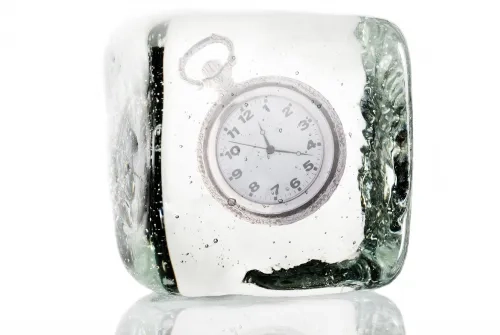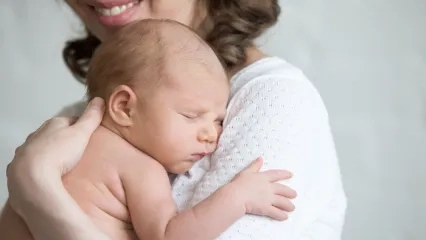Alo Yeditepe
Alo Yeditepe
Egg Cryopreservation
Decline in pregnancy rates due to aging is primarily caused by reduced quality of egg with aging. If a woman consents to cryopreservation of her eggs, she may have chance of pregnancy whenever she feels ready, even when she is 50. Recently, egg cryopreservation offers a chance for young women who want to delay pregnancy especially due to career.
Who Can Have Eggs Frozen?
Legal criteria for oocyte cryopreservation in our country are as follows: protective of reproductive capacity before cancer treatment, such as chemotherapy and radiotherapy, which may lead to infertility; surgical procedures that may cause loss of ovarian function; women with low ovarian reserve who have not given birth or have family history of early menopause, provided a health report is issued and signed by three physicians.
Does Cryopreservation Damage Eggs?
Oocyte cryopreservation does not cause cell death. Freezing pauses intracellular movement and cellular metabolism for a short period of time. Death of a cell is caused by ice crystals that form inside the cell. Current freezing technique (vitrification) prevents formation of ice crystals inside the cells and frozen cells can maintain viability in liquid nitrogen for many years. .
How Is Oocyte Cryopreservation Performed?
Ovaries are stimulated or induced in a controlled manner through a medication therapy that lasts for 10 to 14 days in average and next, oocytes are picked up under anesthesia. The picked up oocytes are frozen using vitrification (quick) freezing method. Consent form must necessarily be signed by the person before the cryopreservation. Documents and reports that mention the ground of freezing should be attached to the form. Frozen sex cells are recorded and stored in storage containers filled in with liquid nitrogen at -196 ℃.
Are Babies of Pregnancies Achieved with Cryopreserved Eggs Healthy?
Egg freezing does not damage the baby. First twin pregnancy with frozen oocytes was achieved in 1986 and more than one thousand healthy babies without any congenital anomaly were born thereafter. Studies did not reveal out a significant difference between frozen oocytes and fresh eggs in terms of birth of living newborn infants and obstetric (diabetes, hypertension, premature birth, anemia etc.) and perinatal results. Freezing the embryos derived from eggs that are frozen with vitrification has no negative effect on birth rates of healthy newborn infants.
How Long Can Frozen Eggs Be Stored?
Storage period is 1 year (it can be extended each year up to 5 years, provided consent is obtained from the patient; approval of Ministry of Health is required beyond 5 years). If the person with frozen eggs decides not to use the eggs and does not want to continue storage, the only option is disposal of these eggs. If so, it is necessary to visit the in vitro fertilization center and submit a letter of request that is signed by the person and specifies the reason of disposal. Next, Ministry of Health is notified and eggs are disposed.
This content was prepared by Yeditepe University Hospitals Medical Editorial Board.
”
See Also
- What is Whooping Cough? The Importance of Whooping Cough Vaccination During Pregnancy
- Contraceptive Methods: Birth Control and Effective Protection Options
- What is Ovarian Reserve?
- Uterine Polyps, Symptoms and Treatment
- Genetic Diagnosis in IVF Treatment
- What Happens at 3rd Weeks of Pregnancy?
- What Happens at 2nd Week of Pregnancy?
- What is Endometriosis? What are the Symptoms of Endometriosis?
- What is Hormone Replacement Therapy (HRT)? How is HRT Performed?
- Hormonal Disorder Symptoms and Treatment
- What is Ureaplasma? How is Ureaplasma Treatment Done?
- What is Pelvic Floor? What are Their Duties?
- The Most Common Diseases in Women
- What is Hysteroscopy? Hysteroscopy Usage Areas
- What is Myoma? Myoma Symptoms and Treatment
- Early Menopause and Ovarian Failure Can Be Prevented
- What is Laparoscopic Surgery in Gynecology?
- Menopause Symptoms and Menopause Treatment
- Polycystic Ovary Syndrome and its Treatment
- Electromagnetic Stimulation in the Treatment of Endometriosis and Infertility
- How Does Working Life Affect Prospective Mothers?
- Causes of Female Infertility
- The Use of Non-Inpatient Closed Surgery is Increasing in Gynecological Diseases
- Chronic Pelvic Pain
- What is Polycystic Ovary Syndrome/PCOS?
- Postpartum Period
- 7 Effective Tips Against Urinary Incontinence
- Sperm Will Be Produced from Stem Cells Soon
- What is Menopause? When Does Menopause Age Begin? What are the Symptoms of Menopause?
- The Chance of Becoming a Father Increases with Microchip Technology
- Thanks to the Ovarian Rejuvenation Method, She Counts the Days for Birth!
- Tests That Need to Be Performed During Pregnancy
- Which Tests Should Expectant Mothers Not Neglect? What Tests Should Be Done While Pregnant?
- Some Patients Go Through Menopause Even at the Age of 15
- Stress Disrupts the Menstrual Cycle
- Myomas Can Grow During Pregnancy
- Useful Bacteria Increases IVF Success
- Polycystic Ovary Syndrome Can Occur If the Bacteria in the Gut Are Not Functioning Well
- Imaging Methods During Pregnancy
- After 16 Years, She Wanted to Be a Mother Again; She Experienced the Shock of Her Life
- These Diseases Affect Women Differently Than Men
- Beware of Chocolate Cyst! It Affects 1 in 10 Women
- Causes of Male Factor Infertility
- The Effect of Advanced Age on IVF Treatment
- Infertility
- Polycystic Ovary Syndrome
- Early Menopause
- Blocked Fallopian Tube
- Vaginismus
- Low Ovarian Reserve (AMH)
- Which Methods Increase Success in Treatment of Infertility?
- Intrauterine insemination (IUI)
- Microinjection
- Assisted Hatching
- Micro-chip
- Pre-implantation Genetic Diagnosis
- Thyroid Diseases During Pregnancy Affect the Baby as Much as the Mother
- Urinary Tract Infections Can Be A Sign Of Menopause
- 10 Overlooked Signs of Menopause
- Endometriosis
- Co-Culture
- Ovarian Rejuvenation / PRP
- As Average Life Expectancy Increases, This Problem Will Be Seen More
- 'Early Age' Warning for Egg Freezing Procedure
- Beware, These Risks Increase After Menopause!
- This Problem Ruins the Lives of One in Every 10 Women
- Getting Cancer Treatment Does Not Stop You from Having Children!
- Prof. Dr. Attar: Endometriosis Can Be Associated With Some Chronic Diseases
- What Is the Period of Fertility? What Tests are Performed for Fertility?
- What Happens at 38 Weeks of Pregnancy?
- What Happens at 37 Weeks of Pregnancy?
- What Happens at 36 Weeks of Pregnancy?
- What Happens at 35 Weeks of Pregnancy?
- What Happens at 34 Weeks of Pregnancy?
- What Happens at 33 Weeks of Pregnancy?
- What Happens at 32 Weeks of Pregnancy?
- What Happens at 31 Weeks of Pregnancy?
- What Happens at 30 Weeks of Pregnancy?
- What Happens at 29 Weeks of Pregnancy?
- What Happens at 28 Weeks of Pregnancy?
- What Happens at 27 Weeks of Pregnancy?
- What Happens at 26 Weeks of Pregnancy?
- What Happens at 25 Weeks of Pregnancy?
- What Happens at 24 Weeks of Pregnancy?
- What Happens at 23 Weeks of Pregnancy?
- What Happens at 22 Weeks of Pregnancy?
- What Happens at 21 Weeks of Pregnancy?
- What Happens at 20 Weeks of Pregnancy?
- What Happens at 19 Weeks of Pregnancy?
- What Happens at 18 Weeks of Pregnancy?
- What Happens at 17 Weeks of Pregnancy?
- What Happens at 16 Weeks of Pregnancy?
- What Happens at 15 Weeks of Pregnancy?
- What Happens at 14 Weeks of Pregnancy?
- What Happens at 13 Weeks of Pregnancy?
- What Happens at 12 Weeks of Pregnancy?
- What Happens at 11 Weeks of Pregnancy?
- What Happens at 10 Weeks of Pregnancy?
- What Happens at 9 Weeks of Pregnancy?
- What Happens at 8 Weeks of Pregnancy?
- What Happens at 7 Weeks of Pregnancy?
- What Happens at 6 Weeks of Pregnancy?
- What Happens at 5 Weeks of Pregnancy?
- What Happens at 4 Weeks of Pregnancy?
- What Happens at 1st. Weeks of Pregnancy?
- Considerations for Embryo Transfer
- What Causes Menstrual Irregularity, How Is It Treated?
- Success in IVF after 43 Decreases to Five Percent
- Does Pregnant Coronaviruses Affect?
- Most Frequently Asked Questions During Pregnancy
- Untreated Genital Problems Can Cause Urinary Incontinence
- 1 in 10 Women Have This Problem; It Can Lead To Infertility
- Effective Results Can Be Achieved with PRP in Women with Low Egg Count
Alo Yeditepe










